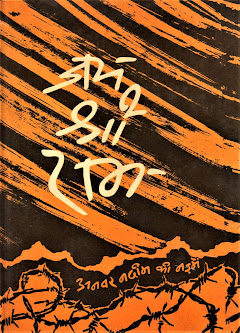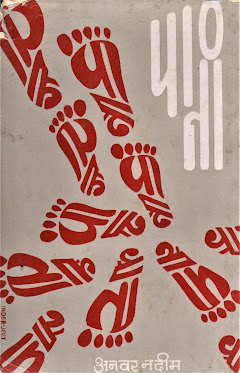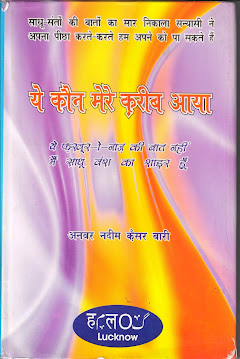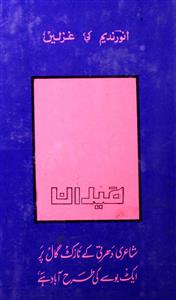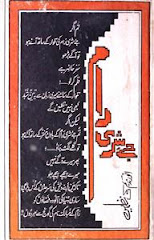आवारगी से गो रहे रुसवा-ए-दहर हम
बारे तबीअतों के तो चालाक हो गए !
- I
never touched the Gulli-danda, nor played with marbles, never took interest in
cricket or hockey, didn’t leap towards football or kabaddi; didn’t run after
swimming or horseriding; cards and carom didn’t impress me. My interest lay in
films. Even today, my heart is inclined towards them. The ability to act crawls
through the entire body, the heart becomes anxios for poetry and the mind
weaves stories. But gentlemen! Is there a way to channelize the talent of
acting, the fortune of poetry and this crop of stories? The layers of the mind
don’t allow to shout out or to step outside the house. In this multitude of
faces, relations with a few, friendliness with others, but still very different
from everyone. Conversation without pretence and hearty laughters- neither
worrying about work nor hungry for fame, nor lusting for money. If essential
needs were met, then fine, if not, then didn’t care a dime. All my life, I
didn’t seek solace in any kind of intoxication nor clinged to simplicity; but
the relationship I’d struch with this couplet of Ghalib, remained forever:
āvārgī
sé go rahé rusvā-é-dahar ham
Bāre
tabiyatoṅ ké to chālāk ho ga’é
(Translation by Saira Mujtaba)
An Excerpt from Namrata Joshi, Reel India: Cinema off the
Beaten Track (Gurugram: Hachette India, 2019):
For all those success stories, however, and the mutual love
and affection shared by Lucknow and Mumbai, there are also tales of fiascos, of
aborted ventures and filmi dreams dying young. Our Lucknow trip comes to a
close with one such sad, untold and undocumented story of a film called
Kirchein (Shards), written by Anwar Nadeem Kaiser Bari, nephew of the Pakistani
poet Josh Malihabadi; a film that was launched and relaunched, but never made.
Anwar Nadeem confesses that he was always interested in
movies, in writing songs and spinning stories, but was just as sceptical about
taking the train from Lucknow’s Char Bagh railway station to Mumbai, to forge a
career in the Hindi film industry. He wanted films to come home to him. For a
while,
it seemed as if his dream would actually turn into a reality.
In 1971 he met Satyanand Rao, who hailed from a village in
Andhra Pradesh and wanted to make a film that was set in Lucknow. Nadeem’s
Kirchein, about a woman who tries to bring her sister out of the kotha-tawaif
(courtesan) world by marrying her off to her own lover, caught Rai’s fancy.
Three songs were recorded in Bombay (now Mumbai), among them, a rare Muhammad Rafi gem:
‘Chaahoon bhi to soch na paaoon mera mann kya soch raha hai. However much I
try, I can never tell what my heart is feeling.’ A unit came down to Lucknow
from Bombay for the shoot. But things got stalled even before they could start in earnest. A production of Mehfil Films, launched by Nawab Jafar Mir Abdullah
in the ’80s, Kirchein never saw the light of day for lack of finances – or so
the nawab claims. A decade later, Rao tried to relaunch the film with a new
name – Thakan. A new theme song was also recorded for it. A unit came down from
Bombay again. And yet again, things ground to a halt for the same reason – lack
of finances.

Nadeem refuses to talk much about it. All you can sense is a
deep cynicism and an irreparable fissure in his relationship with the nawab.
But even as it lies unmade, the films’s script has been published as a book.
Does he anticipate the possibility of the film eventually being made, now that
Lucknow is buzzing with film shoots?
‘No’, comes the curt reply. ‘It’s about a culture whose
tracks have been erased. It’s about the past that no longer exists.’
It’s about a city that is lost in time, even as another
Lucknow thrives today in Bollywood films.
Anwar Nadeem (centre) with filmmaker Satayanand Rao (with beard)
































































